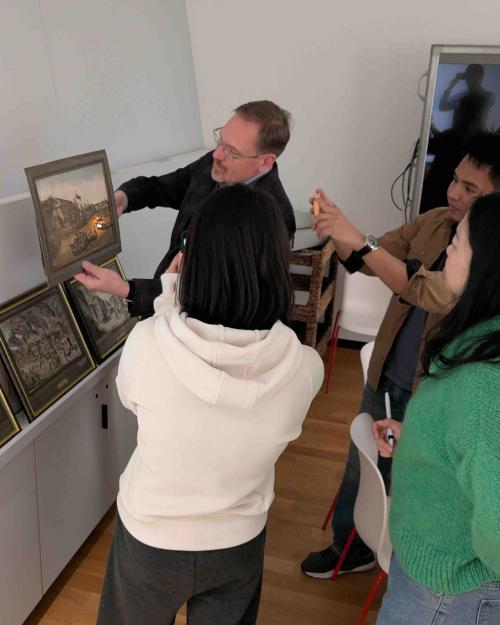This is an episode from the “What Makes Us Human?” podcast's second season, "Where Is the Human in Climate Change?" from Cornell University’s College of Arts & Sciences, showcasing the newest thinking from across the disciplines about the relationship between humans and the environment. Featuring audio essays written and recorded by Cornell faculty, the series releases a new episode each Tuesday through the spring.
I was raised along the south shore of Lake Michigan in a rust belt city, Gary, Indiana, and it was impossible to avoid seeing that humans dominate the environments where we live. In my work as a professional ecologist since that time I’ve come to see humans as gardeners, managing cultivated environments. Pristine nature seems to be an illusion.
In my work I focus on understanding how organisms respond to changing environmental conditions. Almost always, I find that human actions are behind these changes. For example, I have tracked the spread and impact of zebra mussels, small, prolific organisms that first arrived in North America in the 1980s. They clog pipes, they disrupt ecosystems. But then there are others, like alewife, a non-native fish that ended up supporting the renaissance of Great Lakes fisheries in the 1960s and 70s.
My work in the Adirondack region has focused on acid rain that fell during the U.S. industrial expansion since World War II. Acid rain decimated many fish, and other organisms in that region. But fortunately, federal environmental regulations, such as the Clean Air Act, fostered the recovery of lakes and streams across the Adirondack landscape. As the 21st century began, it’s obvious that the control of acid rain has provided an impressive environmental success story.
Yet as acid rain receded from public attention, another worldwide problem resulting from atmospheric emissions has begun to loom large: that’s climate change. Climate change will probably not make the earth unsuitable for humans, though it will substantially alter the places where we live. Coastal cities might have to be abandoned. We might have to adjust our current practices of agriculture, recreation and transportation. And as with any garden we don’t have control over weather, soil conditions, and pests, so we’ll have to adapt to new conditions.
My experience with acid rain taught me that humans can and should respond to climate change by supporting collective action to reduce greenhouse gas emissions.
Will that happen? Well, I doubt it. More often than not in the past, humans have adjusted to changing environments, rather than returning them to their original state. Humans have successfully colonized every corner of earth. We are generalists. We moved out of Africa and claimed the entire planet. And so, I expect that humans will continue to adapt and colonize as we continue to form the gardens where we live.




